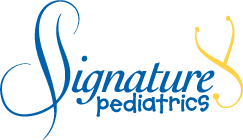The month of May brings beautiful weather, the promise of summer, the end of the school year, and……final exams!
It is normal to feel nervous before a test—most people do. However, for some children this normal anxiety escalates into something more intense and debilitating. And no longer is this a condition that affects only teenagers concerned about GPA’s and college. With the pressure that end of year tests like the EOG’s puts on students, many of our younger children are experiencing significant anxiety at this time of year.
The physical symptoms are the same as with any type of anxiety. A child may have a stomach ache or nausea, a headache, feel shaky or sweaty, or complain of a racing heart, shortness of breath or light-headedness. Symptoms can even progress to hyperventilation or a full-blown panic attack, which can make a child feel like he or she can’t breathe or is having a heart attack.
Along with these physical symptoms comes the worry and negative thoughts associated with test anxiety. Children worry about doing poorly on the test, which fuels the physical symptoms of anxiety in a vicious negative cycle. The child feels worse and worse, and the negative thoughts and worries crowding the child’s brain affect his or her ability to concentrate and think about the test questions. This can lead to poor performance on the test, which then only fuels the anxiety for the next test situation.
So, how can we help our children with test anxiety? Here are some general tips:
1. Help your child prepare for the test. For younger children, this may just mean making sure they know what to expect on test day. Just being prepared for the format of the test and what types of questions to expect will help at any age. Older children may need help learning good study skills.
2. Make sure your child gets some exercise and enough sleep. Aerobic exercise can help release stress. Studies have shown that lack of sleep directly affects academic performance, and a good night of sleep is likely to be more effective than staying up late doing last-minute studying.
3. Teach your child some simple relaxation techniques. Your child can do these before and during the test to help calm the emotional and physical symptoms of anxiety. Deep breathing, also known as diaphragmatic breathing, is simple and effective. For a description of how to learn this and other techniques try http://www.stress-relief-tools.com/diaphragmatic-breathing.html. Other relaxation techniques that are easy for children to learn include muscle relaxation and visualization.
4. Enlist the help of the teacher/school. It is a good idea to be sure your child’s teacher is aware of the test anxiety. And if your child has ADHD or a learning disability that is contributing to the anxiety he or she may qualify for special assistance with test-taking, including extended time for the test. Your child’s school can assist you with finding out about how to obtain such accommodations.
5. See a counselor. If the anxiety is causing significant distress and/or affecting your child’s test performance, professional counseling can be very effective. Your pediatrician should be able to refer you to a psychologist or counselor who can help.
Above all, do your best to stay positive with your child. Try to put the test in perspective, and remind your child that he or she is loved and valued no matter how the test turns out.
Why Concierge Pediatrics?
Concierge pediatrics is a better approach to health care because the focus is on the patient. Our goal is to allow you to meet with your pediatrician in a pleasant, relaxed and unhurried environment. This provides plenty of time to ask all of your questions and discuss your child’s specific needs. We want you to feel like family so we treat you like family.
With Signature Pediatrics you will always be able to bring in a sick child to be seen on the same day and can schedule most other appointments on the same day or within 24 hours. Wait times have been greatly reduced or eliminated and you will experience little or no time in the waiting room. Even more importantly, once you’re with the doctor, there’s no rush. We will take the time to truly understand your child’s unique needs and offer the most thorough care and follow-up possible.
Please contact us today and learn how Signature Pediatrics can mean the difference between your child living and living well.
![]()
Signature Pediatrics
6115 Park South Dr. • Suite 105
Charlotte, NC 28210
Phone 704-944-8388
Fax 704-944-8389
Website



